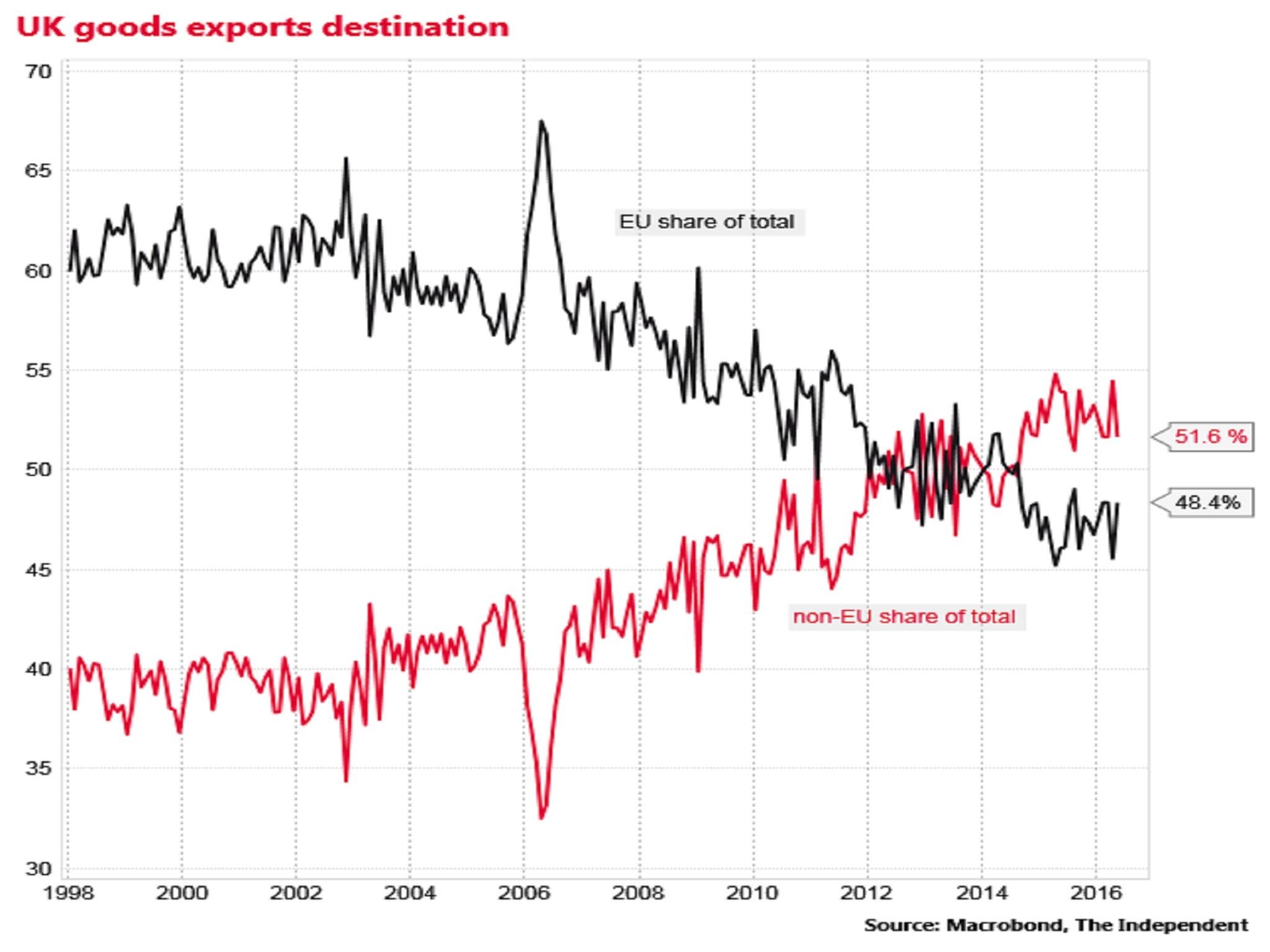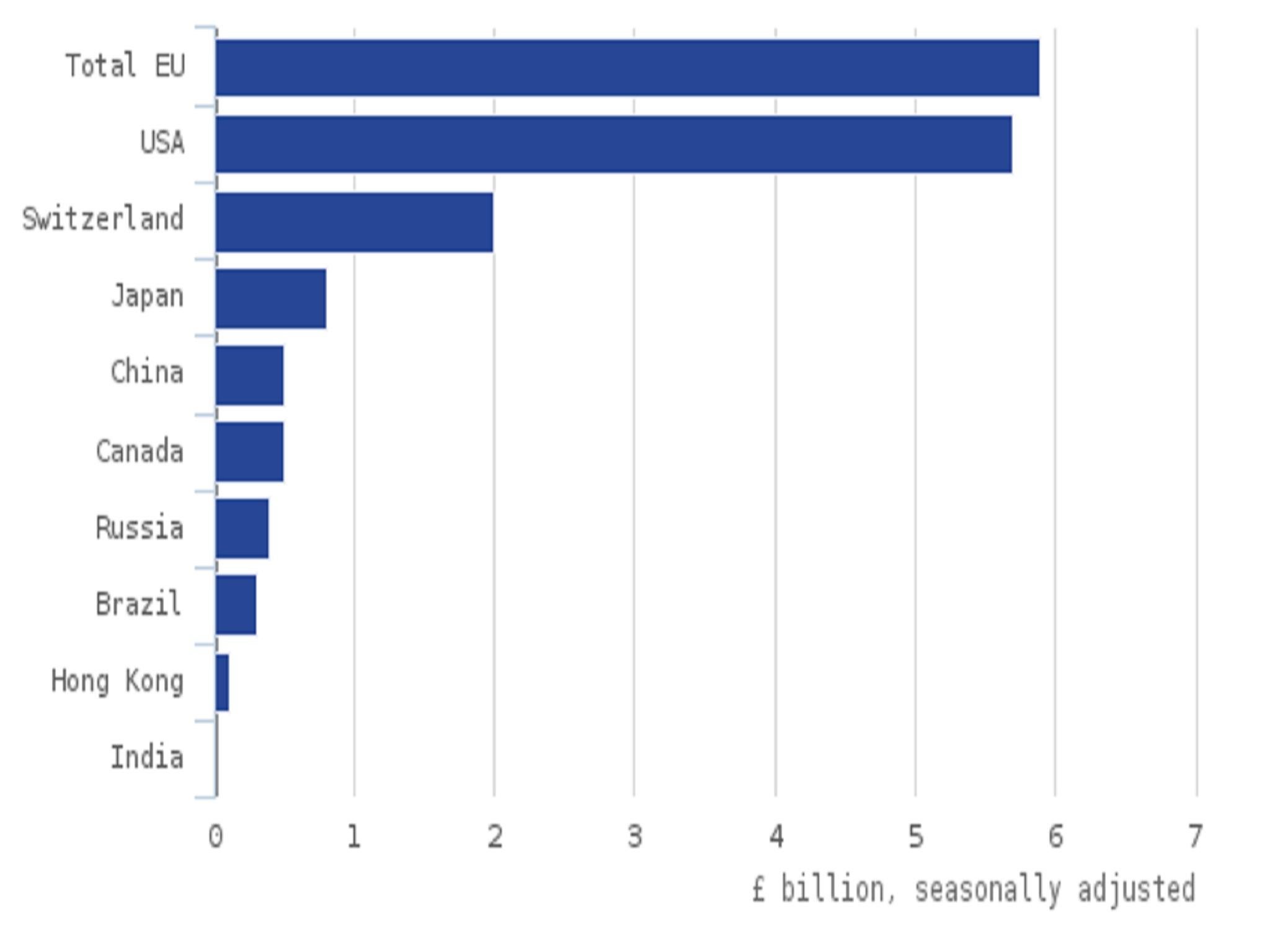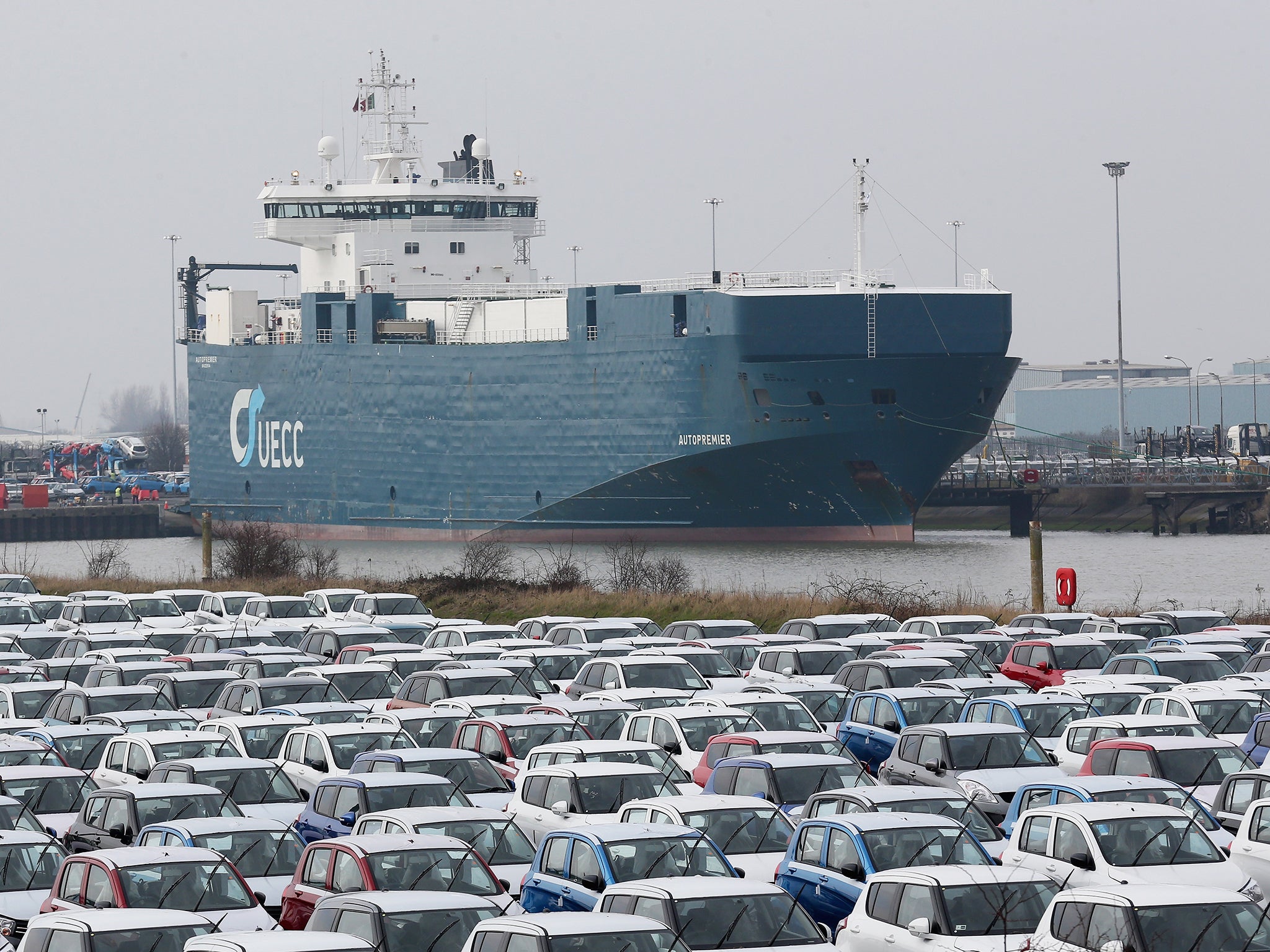Your support helps us to tell the story
From reproductive rights to climate change to Big Tech, The Independent is on the ground when the story is developing. Whether it's investigating the financials of Elon Musk's pro-Trump PAC or producing our latest documentary, 'The A Word', which shines a light on the American women fighting for reproductive rights, we know how important it is to parse out the facts from the messaging.
At such a critical moment in US history, we need reporters on the ground. Your donation allows us to keep sending journalists to speak to both sides of the story.
The Independent is trusted by Americans across the entire political spectrum. And unlike many other quality news outlets, we choose not to lock Americans out of our reporting and analysis with paywalls. We believe quality journalism should be available to everyone, paid for by those who can afford it.
Your support makes all the difference.The latest trade figures published this morning emphasise the UK’s reliance on the European Union as a destination for our goods exports – underlining the pressure on the Government to secure a favourable post-Brexit trade arrangement with the rest of the EU.
According to the Office for National Statistics total goods exports in May were £23.7bn. Of those, £11.4bn (48.4 per cent) went to the European Union. Goods exports worth £12.2bn (51.6 per cent) went to the rest of the world.
The share of UK goods exports going to the EU has been trending downwards for the past 15 years as the rest of the world has grown at a faster pace than Europe – yet the share going to the Continent seems to have stabilised at about 45-48 per cent since 2014.
Still reliant on Europe

With the EU the UK had a trade in goods deficit (exports minus imports) of £7.3bn in May and a deficit with the rest of the world of £2.5bn.
Pro-Brexit politicians argue the UK’s chronic goods trade deficit with the EU will put pressure on the EU to do a rapid trade deal, since we are a major sales market for their goods and they will want to safeguard their own exporters’ interests.
Yet some pro-Brexit economists argue the UK should not bother with a trade deal to lift EU tariffs for the UK and simply, unilaterally, abolish all the tariffs on UK imports from anywhere in the world, something that would push down the prices of UK imports but would likely have a devastating impact on many of our manufacturing exporters.
What about services?
The ONS does not report monthly on services exports. But in the first quarter of 2016 it estimates UK services exports to the EU were £23.5bn. For 2015 as a whole, services exports to the EU were worth £88.9bn – 40 per cent of all our services exports.
And in the first quarter of 2016 the UK had an overall trade in services surplus with the EU of £5.9bn.
That was bigger than the UK’s services surplus with the United States.
EU vital for UK services export surplus

Without the UK's roughly £90bn annual services trade surplus for 2015 as a whole the UK's record current account deficit (the difference between everything the country as a whole earns and what it consumes and invests) would have been almost twice as large.
Angus Armstrong of the National Institute of Economic and Social Research has explained why the UK's exporting services firms are likely to need full continued access to the EU’s single market for services (something that goes beyond simply a free trade deal) if they are not to suffer as a result of Brexit.

Join our commenting forum
Join thought-provoking conversations, follow other Independent readers and see their replies
Comments